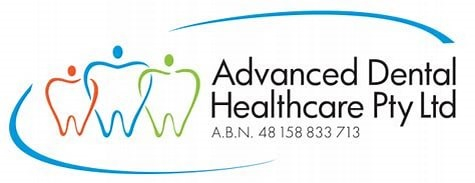1) I have had my tooth out- what should I do now?
Now that the procedure is complete, it’s important to take some steps to ensure a smooth recovery. Take it easy for the rest of the day. Take as little exercise as you can. Keep your head up to avoid any bleeding.
2) What precautions should I take?
After the extraction, it’s crucial to avoid any activities that may disrupt the healing process. Avoid strenuous exercise, spitting forcefully, or using a straw, as these actions can dislodge the blood clot that forms in the extraction site. Avoid hot foods or drinks for 24 hours as the area is numb and you may burn or scald the area. This is quite a common problem which can happen when there is no feeling.
3) Should I rinse my mouth out?
Do not be tempted to rinse the area for the first 24 hours. Gentle rinsing with warm saltwater after 24 hours can help keep the extraction site clean and promote healing. Mix half a teaspoon of salt in a cup of warm water and rinse your mouth gently after meals. Be careful not to swish vigorously, as this can also disturb the blood clot.
4) Is there anything else I should avoid?
Absolutely. It’s crucial to avoid smoking, as it can delay the healing process and increase the risk of complications. Additionally, stay away from hard or crunchy foods that can irritate the extraction site. Stick to soft, easy-to-chew luke warm foods during the initial days of recovery. Avoid alcohol for at least 24 hours as this can encourage bleeding and delay healing.
5) When should I brush?
Good oral hygiene is still important, even after a tooth extraction. However, you should wait until the day after the procedure to brush your teeth. Be gentle around the extraction site to avoid any unnecessary discomfort or disruption.
6) What do I do if it bleeds?
A little bleeding is normal after a tooth extraction. If bleeding persists, place a clean gauze pad over the extraction site and apply gentle pressure for about 30 minutes. If bleeding continues, contact your dentist for further guidance.
7) How soon can I have a cigarette?
Smoking can significantly impede the healing process and increase the risk of complications. It’s best to avoid smoking for at least 24 hours after the extraction. However, quitting altogether would be the most beneficial for your oral health.
8) Is there anything else I can do to help my mouth?
Apart from following the precautions mentioned earlier, maintaining good oral hygiene is essential. You can use a warm salt water or a gentle, alcohol-free mouthwash to rinse your mouth after brushing. Avoid using mouthwashes that contain alcohol, as they can irritate the extraction site.
9) I am in pain, what should I take?
It’s common to experience some discomfort after a tooth extraction. Over-the-counter pain relievers such as ibuprofen or paracetamol can help alleviate the pain. Do not take aspirin, as this will make your mouth bleed. Follow the instructions on the packaging, and if the pain persists or worsens, consult your dentist.
10) Are there any medicines I should avoid?
If your dentist has prescribed medication, follow their instructions carefully. Additionally, it’s important to avoid aspirin, as it can increase the risk of bleeding. If you have any concerns about medications, consult your dentist or pharmacist.
11) I am still in pain, what could it be?
If you’re still experiencing significant pain several days after the extraction, an infection can get in the socket which can be very painful. This is where there is little or no blood clot in the tooth socket and the bony socket walls are exposed and become infected. This is called a dry socket and in some cases is worse than a toothache. It’s most common in smokers. It’s best to contact your dentist. While some discomfort is normal, persistent or worsening pain could indicate an infection or another issue that requires attention.
12) Will my dentist need to see me again?
Typically, your dentist will schedule a follow-up appointment to monitor your healing progress and ensure there are no complications. If you have any concerns or notice any changes in your recovery, don’t hesitate to reach out to your dentist for further guidance.
Remember, every person’s recovery process is unique, so it’s essential to follow your dentist’s specific instructions and reach out to them if you have any concerns or questions. Take care of yourself, and soon you’ll be back to enjoying a healthy, pain-free smile!
